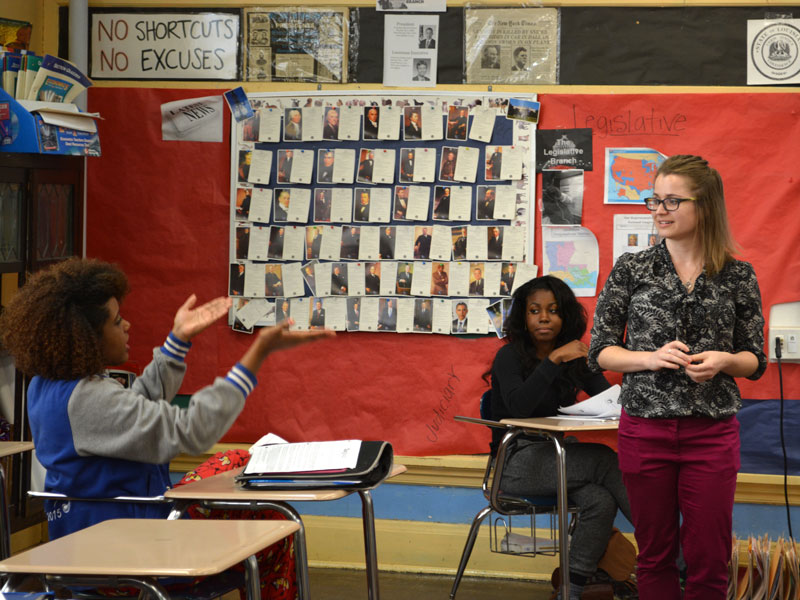As the first U. S. law school to establish a mandatory pro bono requirement, Tulane Law is a leader in public service and an incubator for future access to justice leaders.

In the Fall of 1987, Tulane initiated the nation’s first mandatory pro bono program for the benefit of those members of our community who might not otherwise have access to justice--the underprivileged and the underrepresented. Currently, students are required to complete 50 hours of pro bono service for graduation. Of course, students are welcome to go beyond the minimum requirement! [running total]
Goals of Pro Bono Service
The pro bono culture that Tulane Law fosters is one that fuses students’ talents and interests with compatible pro bono opportunities, engaging students in meaningful services benefitting those who are often the most at-risk in our society. In the process, students practice invaluable lawyering skills such as interviewing, research and writing, fact investigation, and advocacy.
This training is now an essential part of our program of legal education, providing opportunities for students to cultivate leadership, skills, and community engagement under supervision of alumni, practitioners, and potential employers. The pro bono requirement is designed to instill in each student a desire to volunteer and improve access to justice to the underserved members of the communities in which they will serve as members of the bar.
Types of Pro Bono Placements
Students may complete pro bono hours with public interest organizations, local, state or federal government entities, and pro bono practitioners. Qualifying pro bono work must be law-related service under the supervision of an attorney or faculty member. The work cannot be done for pay or academic credit.
The Office of Experiential Learning and Public Interest Programs hosts the Annual Pro Bono Fair every September to assist in the placement of our students with the public sector and local public interest partners. More information concerning past placements, how to propose a new placement, and our electronic timekeeping system is available on the Experiential Learning Intranet page.
Entertainment Law Legal Assistance (ELLA)
The Ella Project is a nonprofit organization that was founded in January 2005 in partnership with Tulane Law School’s pro bono program. The organization was developed in response to the overwhelming need for legal services by artists, musicians, culture bearers and other stakeholders who could not otherwise afford to hire attorneys to protect and enforce their rights.
A Tulane Law graduate and adjunct professor Ashlye Keaton, who is experienced in arts, entertainment and intellectual property law, advocacy and policy, supervises Tulane law students as they help provide pro bono legal advice and services such as copyright, trademark, publicity rights, life rights, general licensing, synchronization and other film and music licenses, in addition to general contract drafting, negotiation and enforcement. Scores of artists have also benefited from ELLA research and assistance on issues outside of the entertainment industry, such as landlord-tenant disputes, successions, and other matters germane to post-Katrina relief and cultural sustainability in the city’s vastly changing population and ecosystem.
Volunteer Income Tax Assistance (VITA)
Tulane law students offer free assistance with income tax filing for those who qualify. This assistance includes e-filing and help with both federal and state returns. Law students working with VITA will advise and complete returns for individuals meeting certain income guidelines.
